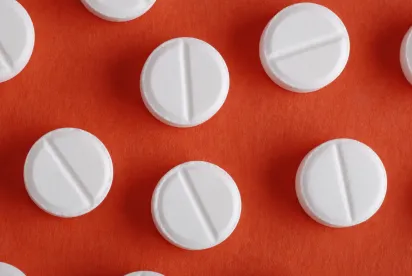The First Circuit handed the generic pharmaceutical industry an early Valentine’s Day treat earlier this month by resuscitating an antitrust suit against Sanofi by direct purchasers of insulin glargine.
This decision provides a possible opportunity to seek antitrust liability against brand companies for regulatory tactics. The decisions should make branded companies think twice about creating patent thickets in the Orange Book, and potentially slowing down generic competition. While this decision sets the stage for further fights over what patents should not be listed as covering approved “drugs,” it also sets a clear test for courts to consider when evaluating other tactics that brands have used to create regulatory delays to stall approval of potential rival products.
By statute, drug sponsors list patents that cover either the “drug” or method of treatment using the drug in a U.S. Food and Drug Administration (FDA) document known as the Orange Book. The FDA publishes the information provided by drug manufacturers, but does not review the patent listings for accuracy. By listing a patent in the Orange Book, the drug manufacturer puts competitors on notice that if they want to sell a generic or similar product before patent expiration, they must prove that the patent is invalid or that the new product will not infringe the patents. Additionally, when the patentee files an infringement suit, it forces the FDA to delay approval of the generic application for 30 months.
Sanofi sells insulin glargine in a disposable, adjustable-dose injector pen under the trade name Lantus SoloSTAR. In this case, the purchasers pled in their putative class action complaint that Sanofi had improperly listed a patent covering a component of the SoloSTAR injector in the Orange Book as covering the Lantus product. By doing so, plaintiffs allege it delayed the approval of multiple rival products, including products by Lilly, Merck, and Mylan. Additionally, plaintiffs alleged that Sanofi had filed sham litigations to trigger the 30-month stay on FDA approval and to create leverage for settlements and licenses despite the non-infringing products.
The First Circuit overturned the district court’s grant of Sanofi’s Rule 12(b)(6) motion to dismiss. The panel found that the patent, which was generally directed to a drive mechanism of a pen injector, was not directed to the listed “drug” and was not therefore eligible to be listed in the Orange Book. Additionally, the First Circuit rejected the district court’s finding that Sanofi’s reasonable basis in listing was enough to prevent antitrust scrutiny. Instead, the First Circuit held that the patentee may only avoid liability by proving that its decision to list was both reasonable and in good faith. Finally, the panel held that the automatic 30-month stay was a sufficient antitrust harm to warrant further litigation.



 />i
/>i
